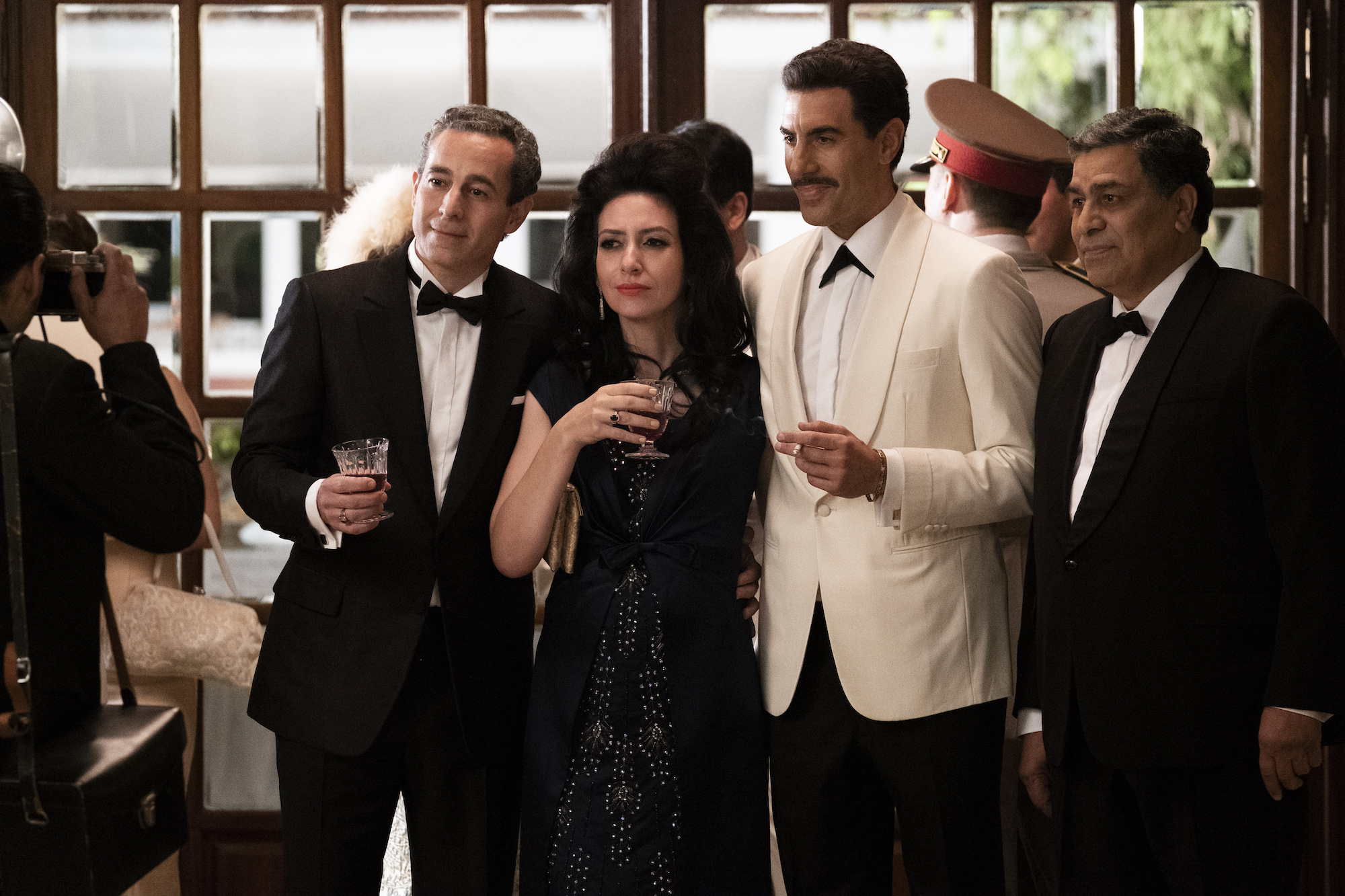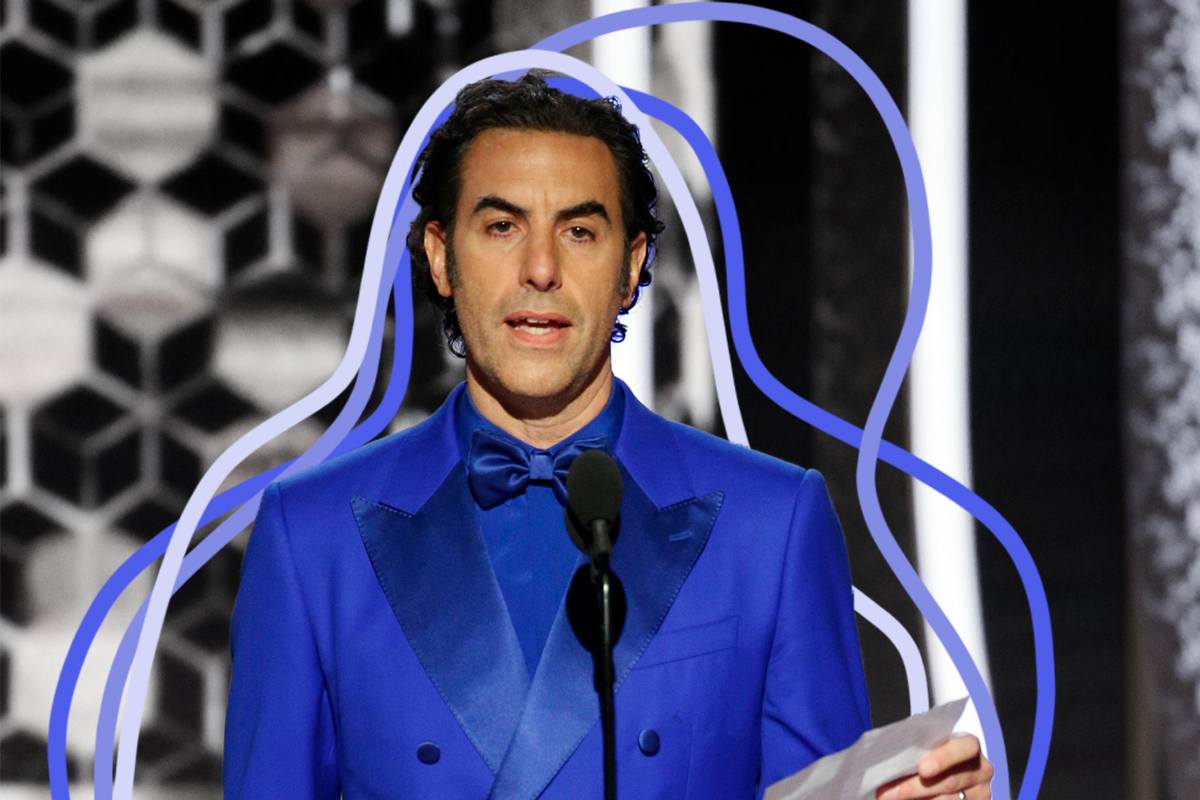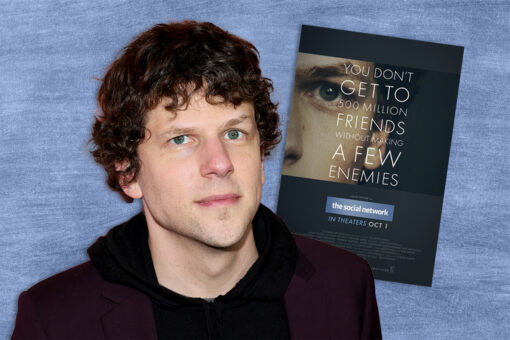At the 2020 Golden Globes, Sacha Baron Cohen presented a look at Jojo Rabbit, one of the best motion picture nominees.
“The hero of this next movie is a naive, misguided child who spreads Nazi propaganda and only has imaginary friends. His name is Mark Zuckerberg,” Cohen said. “Sorry, sorry… this is an old intro for Social Network. I’m actually talking about Jojo Rabbit. It’s nominated for two Golden Globes and it’s directed by its star, the brilliant and groundbreaking Taika Waititi.”
Sacha Baron Cohen, for the win pic.twitter.com/xJXUOOoTU1
— Dave Itzkoff (@ditzkoff) January 6, 2020
His delivery was pitch perfect. (The all-blue suit, we’re still unsure about.) And for those who have been following what Cohen has been up to recently, this jab at Zuckerberg comes as no surprise.
Let’s break it down.
Wait, since when is Sacha Baron Cohen serious?
Where have you been!? While Cohen, 48, is most known for his role in Borat — and perhaps will always be known for his role in Borat — the Jewish actor made waves last year starring in The Spy, a very serious Netflix show about Israeli spy Eli Cohen.
“I used to be reluctant to play anyone Jewish, because I didn’t want to be typecast as the Jewish actor. There are other Jews in Hollywood besides me,” Cohen told The New York Times. “But somehow, people thought of me as ‘a Jewish actor’ even after I played Borat, the most outwardly anti-Semitic character probably since Leni Riefenstahl directed movies.” (Context: Riefenstahl was a Nazi propagandist.)
However, when he read the script for The Spy — which is the story of Eli Cohen, an Israeli who went undercover in Syria and was later executed — and he couldn’t put it down. So, he gave up his position of not playing Jewish roles.

(He was fantastic in the show, btw.)
As Cohen leaned into discussing his Jewish identity, the Anti-Defamation League honored him in November 2019 with their international leadership award, which brings us to…
The Anti-Defamation League Speech
When Cohen went to accept his award, he gave a fiery speech. In his speech, he called social media and Facebook “the greatest propaganda machine in history.”
“I’ve spent most of the past two decades in character. In fact, this is the first time that I have ever stood up and given a speech as my least popular character, Sacha Baron Cohen. And I have to confess, it is terrifying,” Cohen said near the beginning. “I realize that my presence here may also be unexpected for another reason. At times, some critics have said my comedy risks reinforcing old stereotypes. The truth is, I’ve been passionate about challenging bigotry and intolerance throughout my life.”
He went on to discuss how conspiracy theories are becoming more and more mainstream, hate crimes are surging, and democracy is dying. And what do these things have in common? “All this hate and violence is being facilitated by a handful of internet companies that amount to the greatest propaganda machine in history,” he said.
While he critiques all social media — YouTube, Twitter, and others — he saves the largest part of his ire for Zuckerberg and Facebook. Here are his key points:
1. “Freedom of speech is not freedom of reach,” Cohen argued. Just because someone has the right to share what they want to share, does not mean we should be amplifying their views.
2. “We’re not asking these companies to determine the boundaries of free speech across society. We just want them to be responsible on their platforms.” His example for this one is particularly powerful: “If a neo-Nazi comes goose-stepping into a restaurant and starts threatening other customers and saying he wants kill Jews, would the owner of the restaurant be required to serve him an elegant eight-course meal? Of course not! The restaurant owner has every legal right and a moral obligation to kick the Nazi out, and so do these internet companies.”
3. He calls Zuckerberg, and other powerful Silicon Valley CEOs, as “acting like they’re above the reach of law.” He continued, “Instead of letting the Silicon Six decide the fate of the world, let our elected representatives, voted for by the people, of every democracy in the world, have at least some say.”
4. He called out Zuckerberg for allowing Holocaust deniers on Facebook. Yes, Zuckerberg has said in the past that he thinks Holocaust denial is okay on Facebook. In Cohen’s words: “This is madness.”
“Still, Zuckerberg says that ‘people should decide what is credible, not tech companies.’ But at a time when two-thirds of millennials say they haven’t even heard of Auschwitz, how are they supposed to know what’s ‘credible?’ How are they supposed to know that the lie is a lie?” Cohen asks.
5. “By now it’s pretty clear, [tech companies] cannot be trusted to regulate themselves,” Cohen says, calling for regulation and legislation of social media companies. “In every other industry, you can be sued for the harm you cause… But social media companies are largely protected from liability for the content their users post — no matter how indecent it is.”
Tl;dr? Cohen makes a clear and strong argument for the dangerous power that Facebook — and other social media — has right now. He calls for regulation, for fact-checking, for letting elected officials have some oversight, and for not allowing hateful ideologies be amplified on platforms.
You can watch his full speech here (or read it here).
Sacha Baron Cohen’s social media presence
Even though Cohen is very against social media, he remains online. Mainly to call out Mark Zuckerberg! Here are some choice tweets from the last few months:
#MarkZuckerberg — this is a good step. But if Facebook is able to stop spreading lies about the census, why won’t you stop spreading other lies from politicians?!https://t.co/geu8Vazrda
— Sacha Baron Cohen (@SachaBaronCohen) December 19, 2019
No, Mark, it’s not that “complex.” Let me simplify (again): you and Facebook take money from politicians and run their ads — even if they’re not true — without fact-checking them. That’s not democracy, that’s you profiting off propaganda. #siliconsixhttps://t.co/hL5oMd8rjb
— Sacha Baron Cohen (@SachaBaronCohen) December 2, 2019
Is this true? I saw it on Facebook so it’s impossible to tell https://t.co/scwEDNp29X
— Sacha Baron Cohen (@SachaBaronCohen) October 31, 2019
If he owned a fancy restaurant and 4 neo-Nazis came goose-stepping into the dining room and were talking loudly about wanting to kill “Jewish scum”, would he serve them an elegant eight course meal? Or would tell them to get the f**k out of his restaurant? It’s the same thing.
— Sacha Baron Cohen (@SachaBaronCohen) October 17, 2019
Remarkably consistent! Go, Sacha!
All in all…
While people may have been surprised by Cohen’s jab at Zuckerberg at the Globes, it is very much in line with what he’s been saying for the past couple of months. Who woulda thunk that Sacha Baron Cohen would become one of the most outspoken voices against social media?
Header image of Sacha Baron Cohen speaking at the 2020 Golden Globes by Paul Drinkwater/NBCUniversal Media, LLC via Getty Images.



